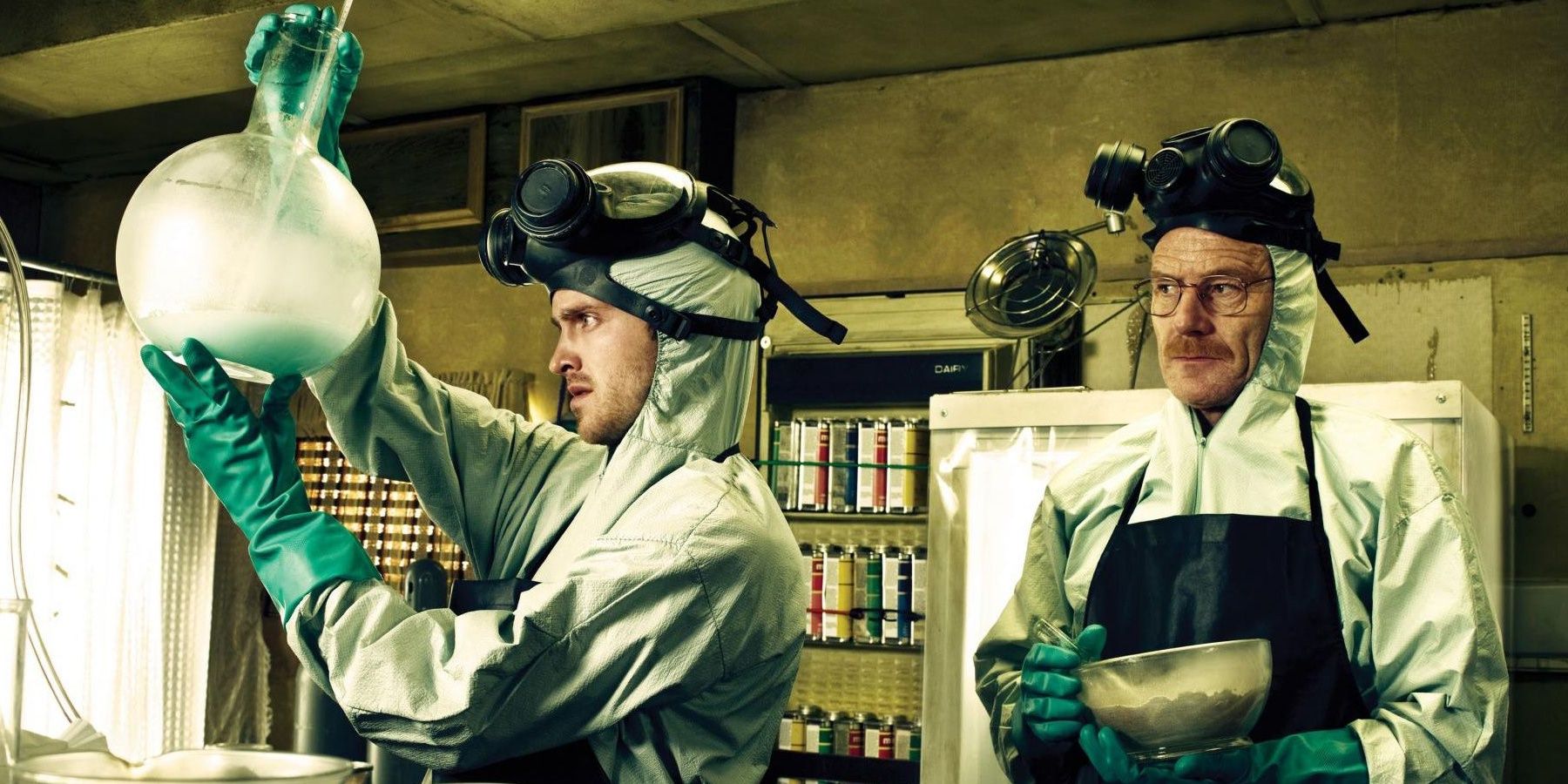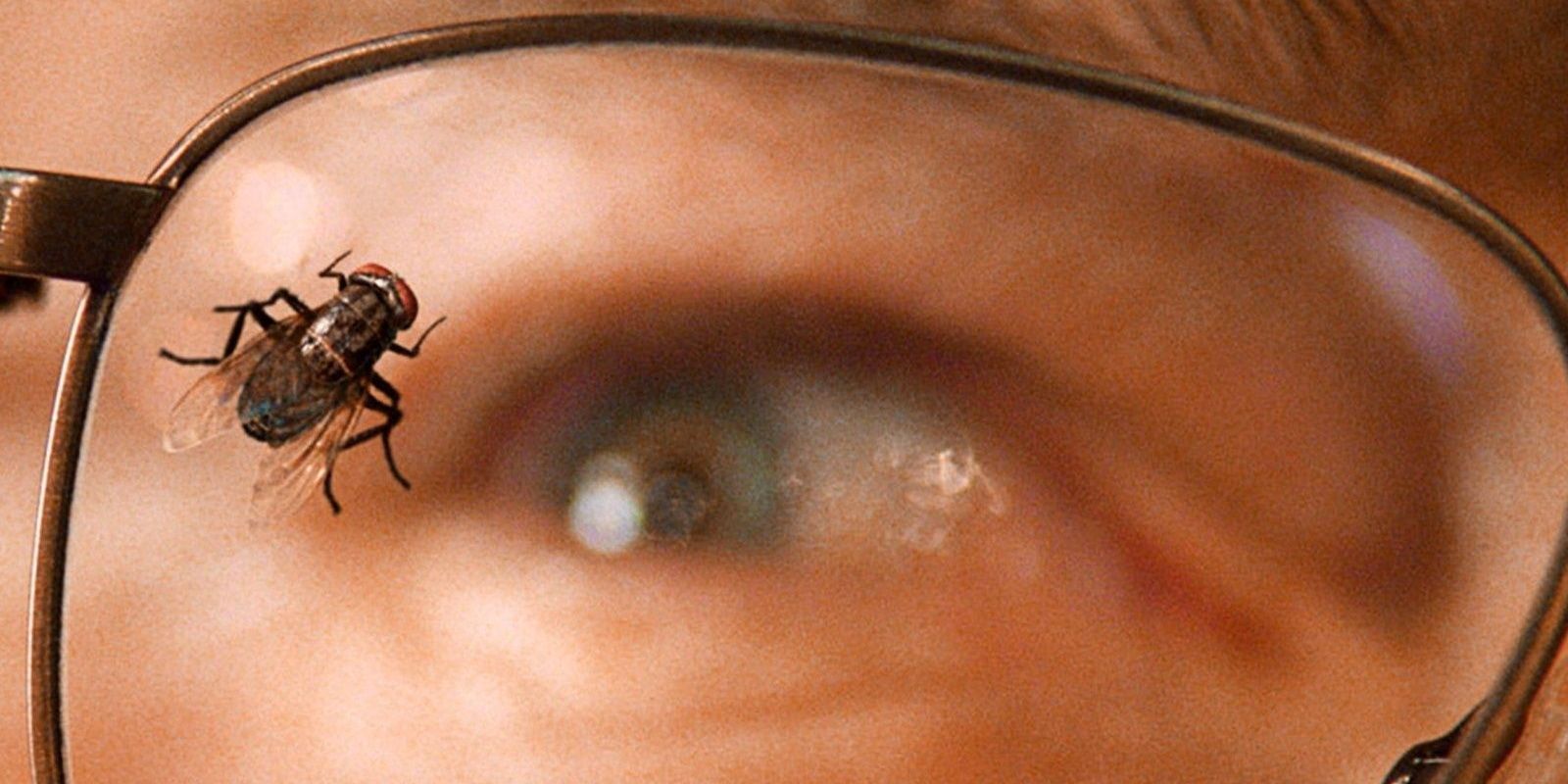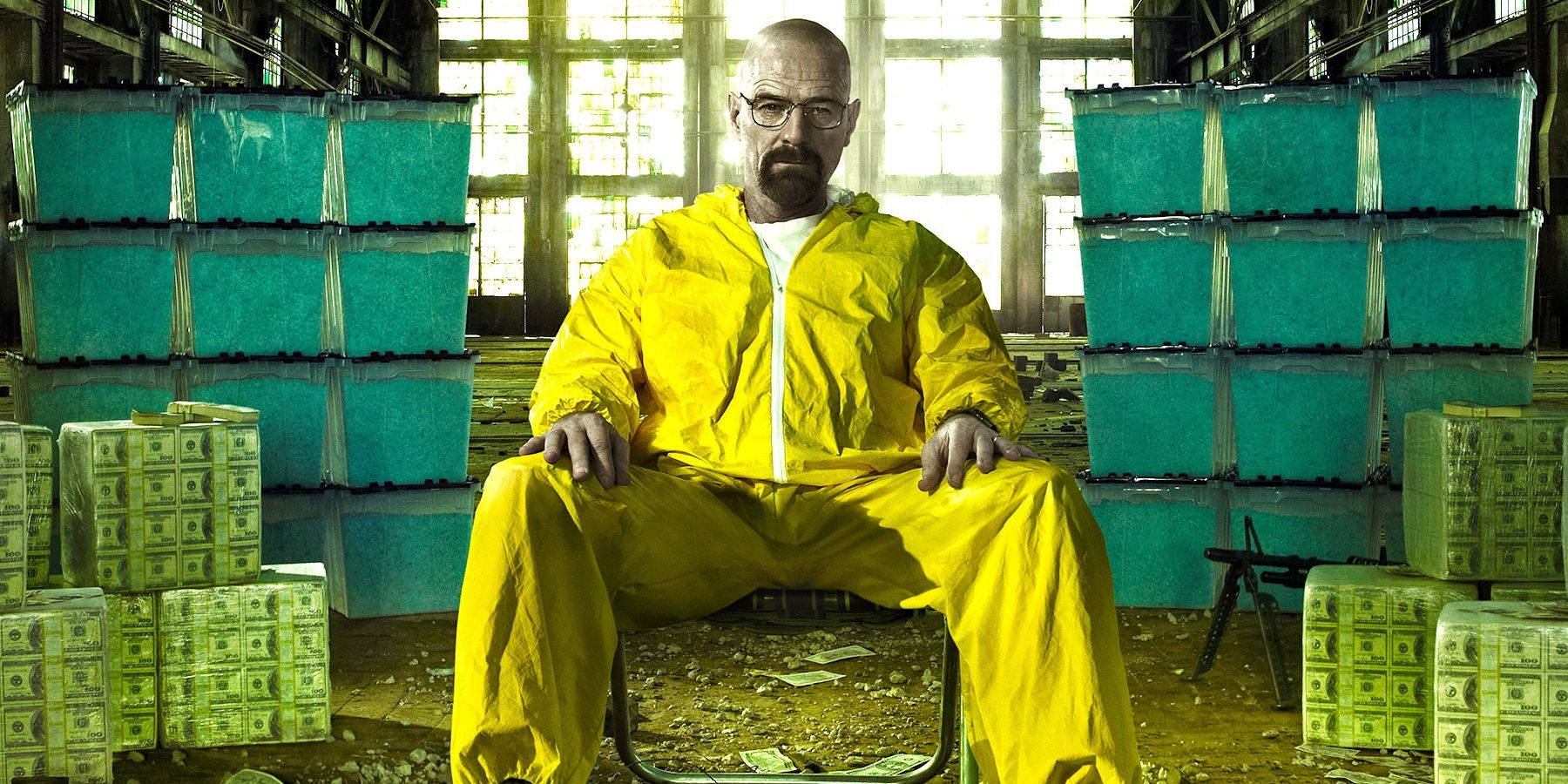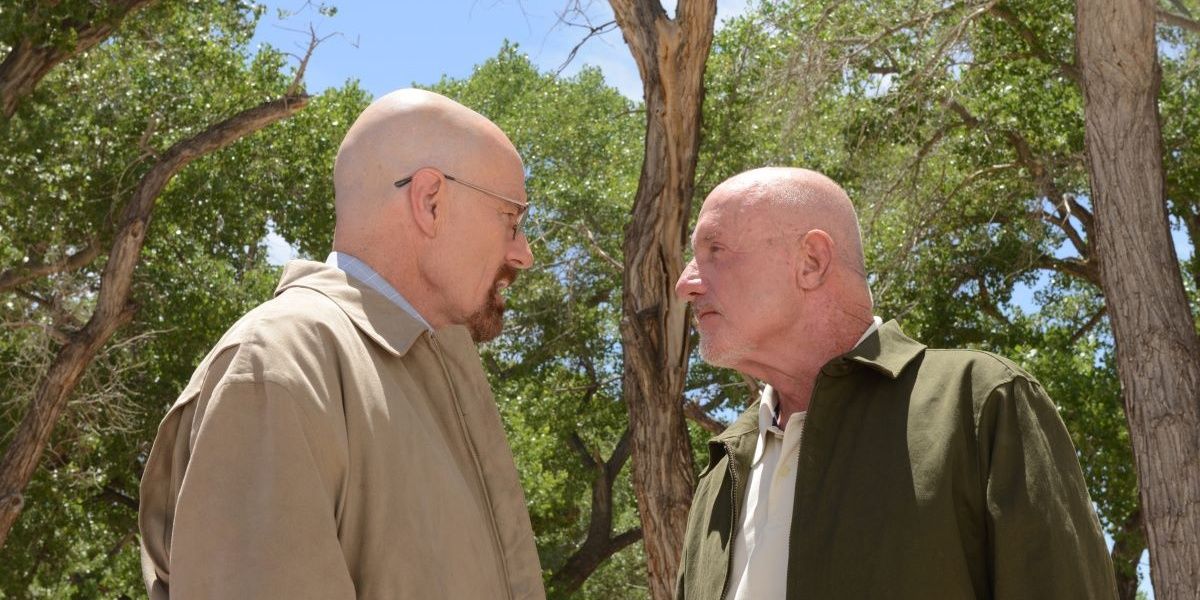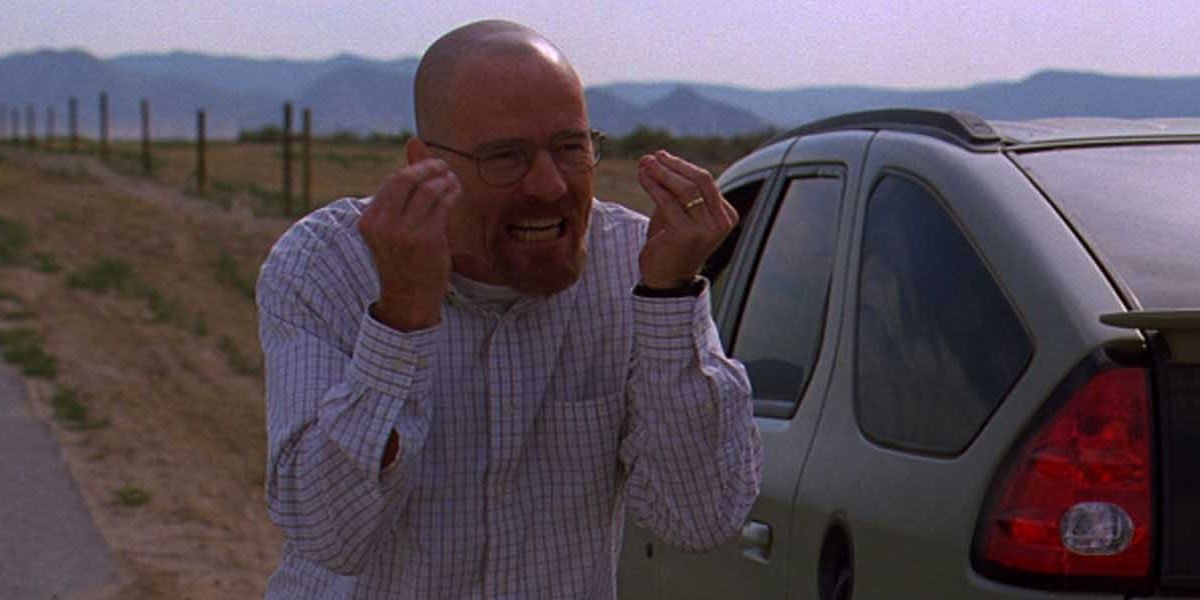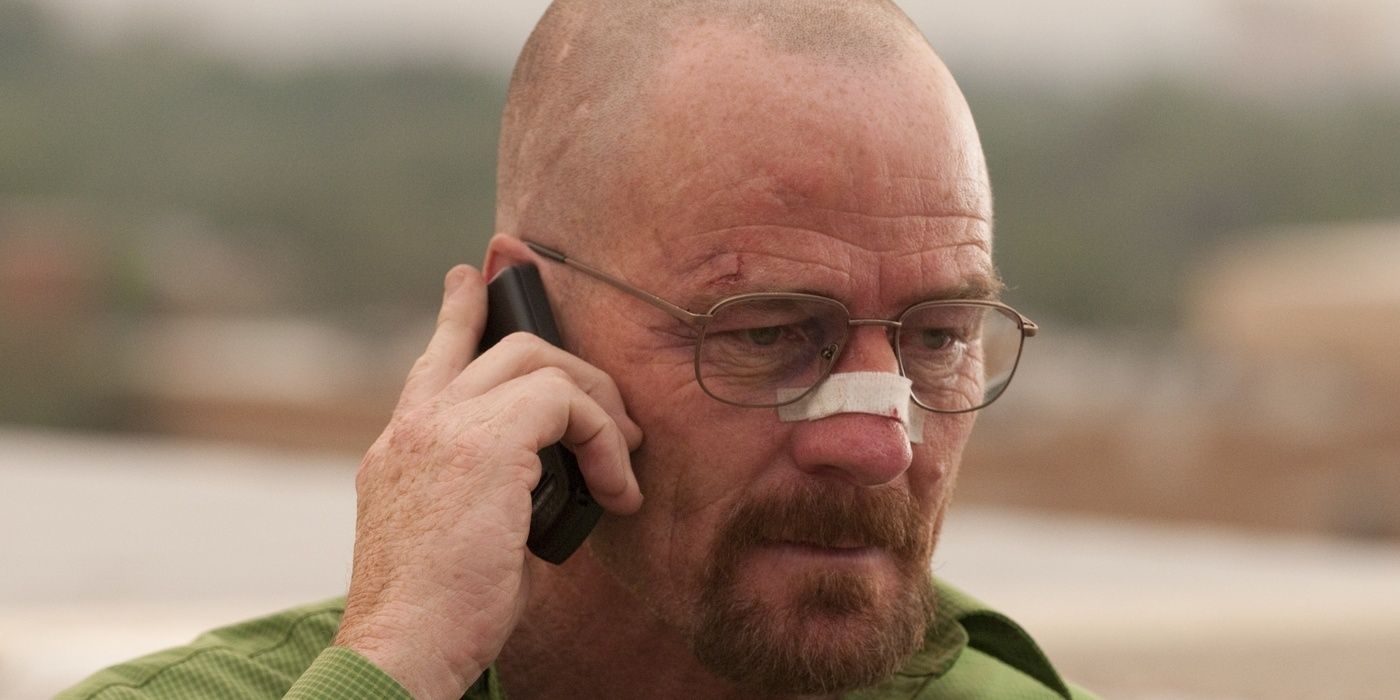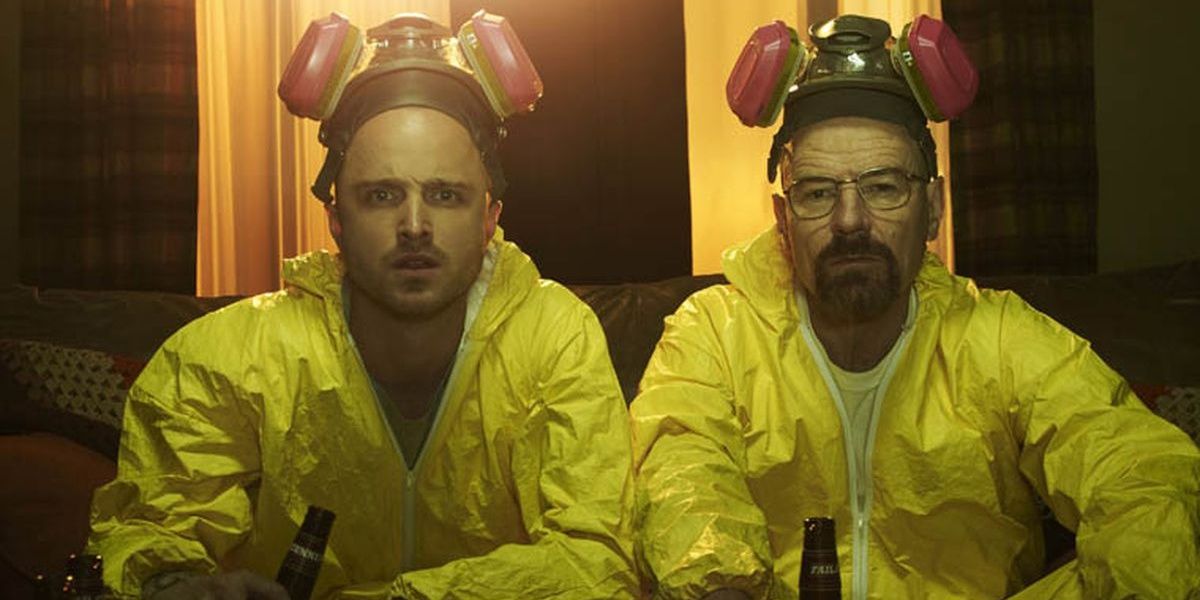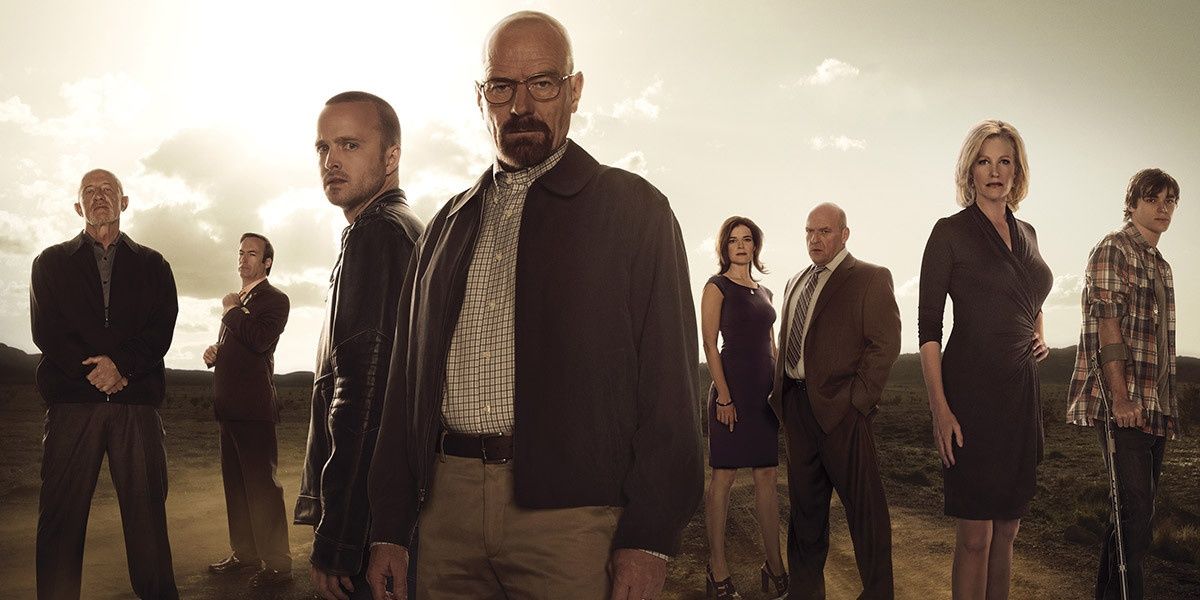Much like chemistry itself, Breaking Bad is the study of change. In telling the story of Walter Hartwell White, creator Vince Gilligan tasked himself with turning "Mr. Chips into Scarface," ostensibly creating a protagonist that became more difficult to root for as his actions became less forgivable. The end result was near-universal acclaim for the show, a plethora of Emmy wins, and an intense character study of one of television's most well-written antiheroes.
In his wonderfully informative YouTube channel, Dr. Todd Grande applies his "scientifically informed" insider look into Walt's mental makeup. Here, he examines Walt's mental health and personality characteristics, as well as how his moral views and relationships change throughout the series.
Openness To Experience
Beginning with the first factor of the five-factor personality model, Walt's openness to experience is rated moderate to low. Dr. Grande finds Walt to have fairly rigid thinking, as evidenced by his inability to think abstractly, though he notes Walt displays more curiosity and adventurousness as the series progresses.
Fans will remember the numerous times Walt berates Jesse for his imprecise behavior, both in the lab and out. Walt is consistently telling others how things need to be done, such as when he accosts Jesse for improperly using cookware, or refusing to consider Saul's suggestions for getting his money to his family. Walt's intelligence may be unmatched, but his willingness to consider the ideas of others is left wanting.
Conscientiousness
Not surprisingly, Dr. Grande rates Walt high on this spectrum. Aside from his brilliance, Walt is very deliberate and organized in nearly all facets, as his meticulous nature is a common thread in the series. It's noted as well that this could be an indication of obsessive-compulsive personality disorder, which wouldn't be all that surprising to longtime viewers.
This is most apparent in the "bottle" episode "Fly," when Walt refuses to leave Gus' super-lab until a rogue fly is disposed of. He locks Jesse out of the lab when he won't listen to Walt's instructions, and he eventually risks physical and mental harm to himself by obsessively pursuing it. It's only after Jesse secretly puts sleeping pills in Walt's coffee that he relaxes, surprisingly offering a glimpse of humility towards Jesse in confiding his feelings on Jane's death.
Extraversion
Walt's extraversion is rated mid to low, which is seen in his ability to work well alone and generally staying to himself. Dr. Grande does point out that when he needs to, Walt does partake in social events, such as family get-togethers, birthdays, and school assemblies.
What's interesting about Walt is that he genuinely seems to enjoy spending time with his family, including Hank and Marie, as well as his colleagues. Despite their constant bickering, he and Jesse are shown having a number of fond moments together, and he even bonds with Gale briefly before firing him.
Agreeableness
In his relationships with others, Walt is found to be closer to mid-range earlier in the series but falls towards the lower end as he delves deeper into the criminal world. His lack of trust and empathy becomes more apparent as his paranoia and antagonistic behavior increases.
Fan-favorite characters like Mike or Saul rarely find Walt to be very agreeable or altruistic, with Mike especially despising Walt's egotistical nature. Walt does demonstrate a compassionate touch on some occasions, however, such as being willing to let Krazy-8 live or rescuing Jesse from Gus' dealers. Yet his turn towards the end, condemning Jesse to die while confessing he could've saved Jane, is simply pure evil.
Neuroticism
In his analysis, Dr. Grande finds Walt's emotional stability somewhat difficult to pin down overall. While the character appears mid-range for most of the series, he leans towards being higher (less stable) on the spectrum as he becomes more depressed and angry.
Dr. Grande highlights that anger really seems to stand out when examining Walt. With the exception of Walter Jr., Walt seems to display anger with nearly everyone else in the series. He gets angry at those who won't follow his orders, such as Saul or Jesse, or in situations where he feels disrespected, like when he gets pulled over for his broken windshield.
Narcissism
One of the "dark triad" traits, along with psychopathy and Machiavellianism, Walt's narcissism slowly reveals itself over the course of the series. As his product becomes more popular, he strives to take more control, to be the boss. As he says to Jesse in Season 5, he's no longer in the money business, he's in "the empire business."
Dr. Grande uses the episode "Say My Name" as an illustration of Walt's unchecked narcissism. As Walt negotiates with Declan, a local distributor, it's revealed that he's there less to ask for help, and more to command admiration. Memorably, he tells Declan to "say my name." Hearing the name "Heisenberg" spoken aloud gives him an intense feeling of power; after all this time, he's become a reputation.
Psychopathy
Walt's ability to lie is nearly as much a series staple as breakfast or POV camera shots. As Dr. Grande says, "he lies so much in the series it's really hard to keep track of them all."
Psychopathy also takes form in Walt's sensation-seeking and increasingly impulsive behavior. After telling Skyler he'll return Junior's car to the dealership, he instead does donuts in a vacant parking lot before blowing the car up. He also picks fights with Jesse and Mike, coming to blows with Jesse over killing Gus, and killing Mike in a fit of rage after Mike insults him.
Machiavellianism
Perhaps his most destructive trait of all, Walt's machiavellian behavior is seen in his ability to manipulate, deceive, and exploit those around him to benefit himself. Walt is especially effective at manipulating Jesse, such as getting him to drop the charges against Hank by offering him a partnership or convincing him to leave town in Season 5 (a manipulation Jesse sees through).
No doubt, Walt's worst and most heinous behavior was poisoning Brock in order to turn Jesse against Gus. Though his plan hinged on Jesse actually thinking he's guilty at first, he manages to steer Jesse's anger towards Gus and effectively put his former partner back in his corner.
Morality
Dr. Grande analyzes Walt's evolving morality through the numerous murders he commits in the series. Early on, Walt seemingly dislikes the life of crime and even attempts to take his own life in the pilot episode when things go sideways. However, after he lets Jane die, he takes a sharp turn in morality.
Though Walt did kill Emilio and Krazy-8 in Season 1, it's argued that this was done out of self-defense. Jane's death could even be viewed through that lens, as she was threatening to destroy Walt's life, but his actions were still reprehensible. After her death, Walt seems to become more comfortable with killing others in his way, such as Gale, Gus, Mike, Mike's men in prison, Lydia, and even Jesse.
Relationships
Walt's relationships with those around him provide a key illustration of the changes his character undergoes. As Dr. Grande observes, nearly everyone in Walt's life grows to hate him, including Skyler and Junior, who once loved and supported him. He also humorously points out that even in Mike's dying moments, he's still annoyed with Walt, instructing him to shut up so he could die in peace.
Ultimately, it's Walt's relationship with Jesse that forms the crux of the show. In the beginning, Walt is rather annoyed with Jesse's behavior and Jesse is confused by Walt wanting to cook meth, but both grow to appreciate their partnership. Walt especially develops a fatherly love for Jesse, genuinely wanting him to be happy and succeed, as evidenced by his short cameo in El Camino. However, like everyone else, Jesse eventually grows to hate Walt and wants to see him burn for poisoning Brock.


